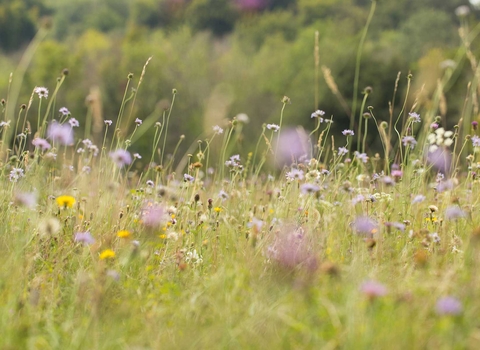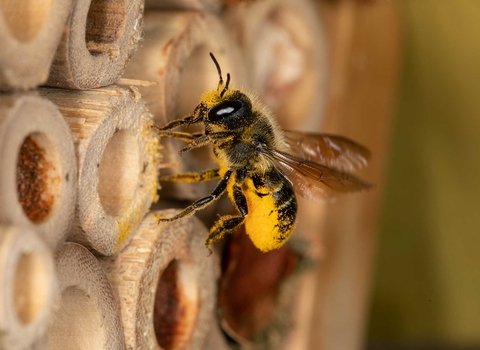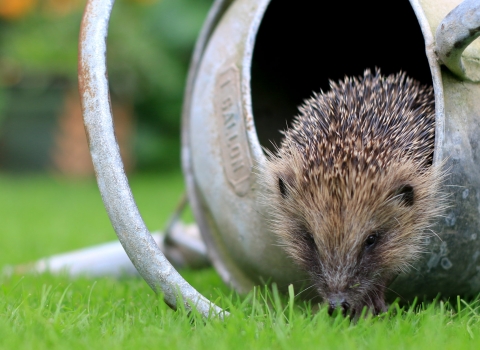Today The Wildlife Trusts launch 30 by 30, a public appeal to raise £30 million to start putting nature into recovery across at least 30% of land and sea by 2030. This comes as Prime Minister commits to protect 30% of UK land to boost biodiversity. To help achieve this target, Surrey Wildlife Trust will be working with partners to restore lost chalk grasslands across the North Downs to help boost pollinators and other wildlife.
Craig Bennett, Chief Executive of The Wildlife Trusts said:
“The headline commitment from the Prime Minister to protect 30 per cent of the UK’s land for biodiversity by 2030 is very welcome – it’s a good start. But the Government seems to think there is more land currently protected for nature than is actually the case. Our National Parks and AONBs are landscape not wildlife designations, and many of these places are severely depleted of wildlife because of overgrazing, poor management or intensive agricultural practices. Our Sites of Special Scientific Interest are supposed to be protected for nature but even around half of these are in a poor state and suffering wildlife declines.”
Nature has suffered serious declines for decades with 26% of UK mammals in danger of disappearing altogether and hedgehogs, red squirrels, bats, turtle doves, cuckoo, water voles and basking sharks all at risk. It is not only individual species that are threatened; the collapse in the abundance of nature also means many of our ecosystems are not functioning as they should. In Surrey sharp declines have been recorded in many invertebrate species, which are vital to the ecosystem: bumblebees have declined by 42%, ground beetles by 51%, butterflies by 44%, hoverflies by 25%, caddisflies by 42%, freshwater snails, slugs and mussels by 34%. (Source: The State of Surrey’s Nature; Surrey Nature Partnership 2017).
Lack of wild places and fragmentation of those that remain has had a disastrous effect. Only 10% of land is protected in the UK and much of this is in poor condition. That’s why The Wildlife Trusts recently called on Government to introduce a new landscape designation for England called ‘Wildbelt.’ This would be for the purpose of putting land into nature’s recovery, such as through the creation of wildlife corridors, through farms, road verges, large estates, local parks or even people’s gardens.
Sarah Jane Chimbwandira, chief executive of Surrey Wildlife Trust, said:
“With support from the PM today, his ‘leaders pledge’ to prioritise a green recovery from coronavirus and deliver ambitious biodiversity targets reinforces our 30 by 30 campaign. However, fundamental misunderstandings about how to meet those targets must be resolved. Whilst Surrey contains beautiful countryside, the biodiversity is poor. A third of wildlife is in decline or at risk of extinction in Surrey and these landscapes like the North Downs are becoming wildlife wastelands. So we need to work with others to show how to bring wildlife back to their land, and we’re calling for nature’s recovery through a new package of policy measures including big new ideas like ‘Wildbelt’.”
“We all need nature more than ever. We all need to rewild our lives to support a green recovery. By supporting our 30 by 30 target we’ll have wilder landscapes that store carbon and provide on-your-doorstep nature for people too. Our vision for Surrey is an abundance of wildlife in people’s gardens, alongside footpaths, road verges and through towns with rivers and hedgerows providing living corridors to enable wildlife to thrive.”




